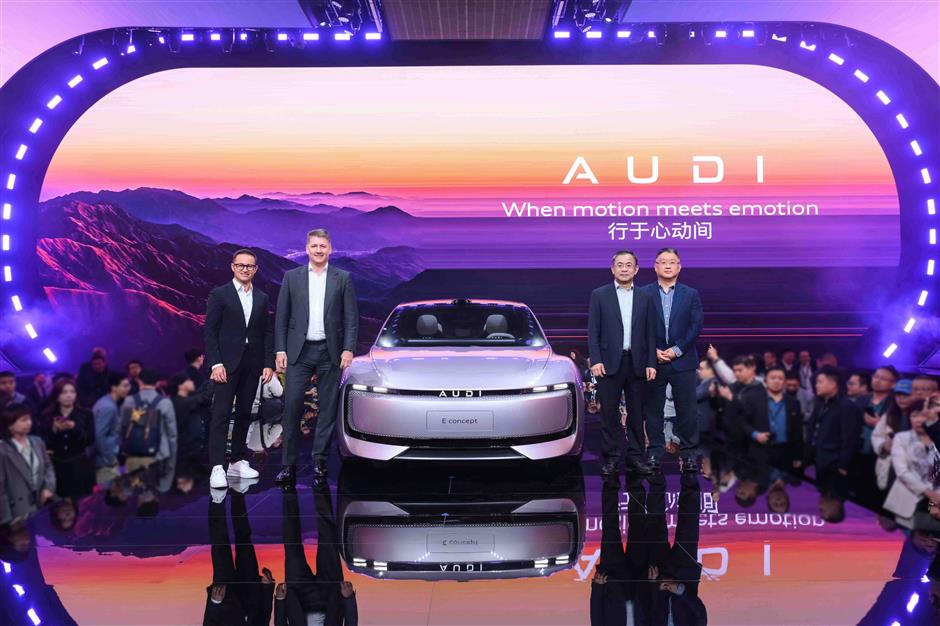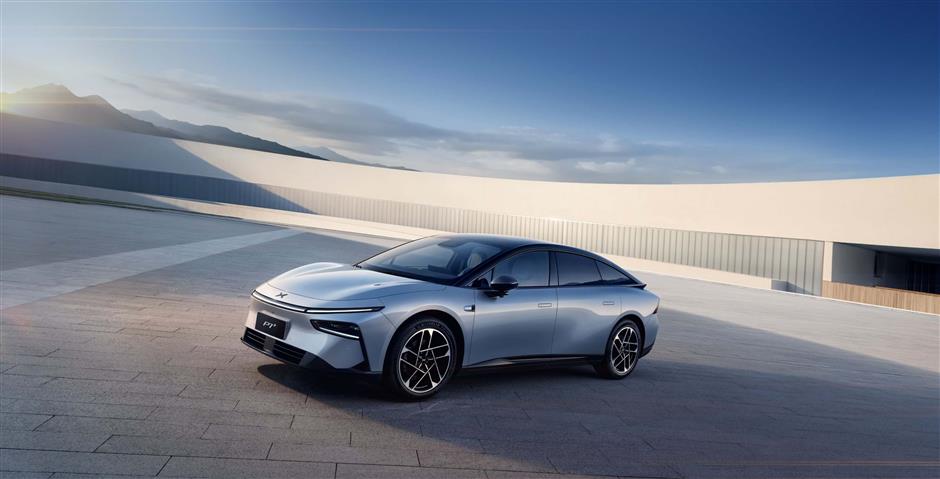奥迪采用新的电动汽车标志
German automaker Audi has unveiled a brand name for a new electric car to hit the China market next year. The model will simply be called Audi, minus the manufacturer's classic logo of four interconnected rings.
The company showcased its first concept of the new car at a brand-launch ceremony last week. It was released just six months after a joint project between Audi, a subsidiary of Volkswagen AG, and Shanghai-based SAIC Group was formed to develop the car.
According to the company, the new Audi will be equipped with a battery capacity of 100 kilowatts per hour and a range of more than 700 kilometers on a full charge.
Its digital platform utilizes an innovative 800-volt architecture with ultra-fast charging capabilities, which increases the range by 370 kilometers in 10 minutes of charging.
Audi-SAIC project team Chief Executive Officer Fermín Soneira, who has worked with Volkswagen for 25 years, said he believes the market is ripe for a new premium electric brand.
"The development process was accelerated by rapid headquarters response to what our Shanghai team members proposed on any given day," said Soneira.
Audi said three different models will be released in the next three years, each addressing a different market segment. The first will be released next year.

Both Audi and SAIC officials attended the launching of "Audi" on 7th November.
The German auto giant is showing gritty determination as it enters the fiercely competitive Chinese market for electric cars. The market is dominated by both domestic and foreign automakers.
In Audi's rear view mirror are BMW and Mercedes-Benz, German competitors that have been working hard on their own electric platforms and systems.
BMW released its concept car, the BMW Vision Neue Klasse, last September. It announced that the company's advanced, new electric platform will be equipped on all new electric models from 2025.
Mercedes-Benz is also developing its compact and mid-size car electric platform, called MMA, with new models based on the platform to be released next year.
The German automakers are apparently betting that a splash in China's electric-car market will help restore sagging sales. BMW's third-quarter net profit fell 83.8 percent from a year earlier; Audi's was down 91 percent, and Mercedes-Benz's dropped 53.8 percent.
The traditional German triumvirate, with long histories in the auto industry, faces stiff challenges from Chinese domestic rivals – many of them relative startups.

Xpeng P7+ that was officially released to the market on 7th November.
Guangzhou-based Xpeng, which was founded 10 years ago, officially launched its P7+ model, a larger and cheaper version of the P7i model. It said it received 31,528 orders in a single day on November 8.
The P7+ is viewed as a strong competitor to best-sellers Tesla Model 3 and BYD Seal.
BYD is a Shenzhen-based electric carmaker founded in 2003. US-based Tesla is now manufacturing electric vehicles at a sprawling super-factory site in Shanghai.
"Although they have spotted industry trends, traditional carmakers could gradually lose their leading position, which would be a painful for them," said Peng Bo, global managing partner of Mc Kinsey & Co.
"In the cell phone industry, it took only six years for market leader Nokia to slip to the bottom," he said. "I think the time left for traditional car companies to transform themselves is quite limited."
He said senior development teams should boldly tap the imagination and diversified backgrounds of younger engineers, and cultivate the core competencies of new businesses outside existing systems. They need to dare to be different.
Source: Shanghai Daily